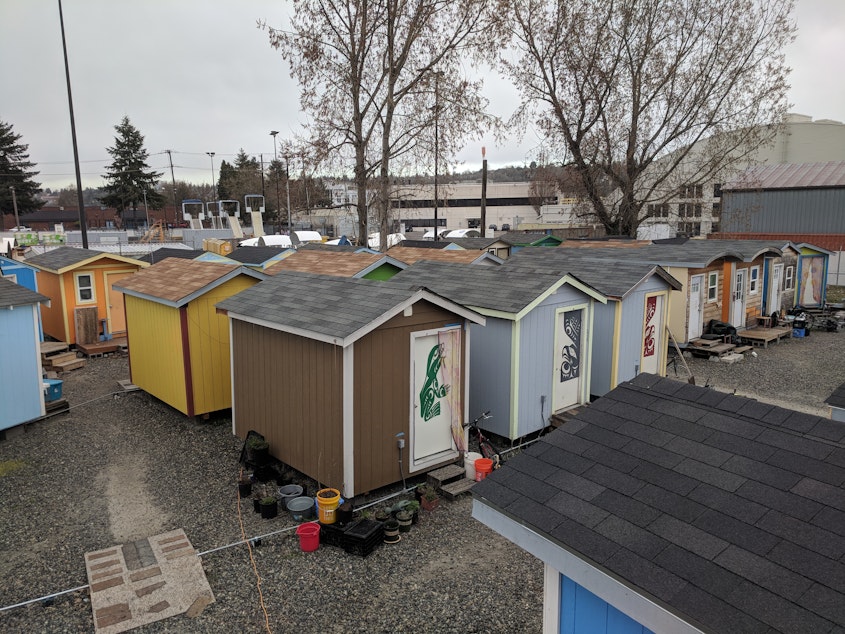Seattle to add shelter capacity amid COVID-19 response

As the region responds to a COVID-19 outbreak, Seattle is expanding shelter spaces for people experiencing homelessness.
Capacity for roughly 100 individuals will be added, with new spaces becoming operational in two to three weeks.
According to the 2019 results of an annual count of Seattleites experiencing homelessness, roughly 3,558 people are homeless and sleeping outside in tents, parks, and on the streets on any given night.
The move to expand shelter follows Seattle Mayor Jenny Durkan’s proclamation of a civil emergency earlier this week.
The proclamation grants Durkan the emergency authority to take measures to address public health and safety threats related to COVID-19. Among those powers are the ability to bypass regulations and steps normally required by city contracting and borrowing, and the ability to forgo regulatory permits.
“We know we need to take additional measures to bring more of our unsheltered community inside. Our neighbors experiencing homelessness are at greater risk of exposure to COVID-19, and as a City, region, and Country we must act with urgency to address the ongoing impacts of this public health crisis,” said Mayor Durkan in a statement.
“Working in partnership with public health officials and King County, we will continue to work with providers to help individuals currently in our shelters as well as expand shelter locations and resources for our most vulnerable individuals.”
Sponsored
According to city officials, the Seattle is adding capacity at several sites. They’ll be converting a vacant former rehab center in Bitter Lake into a shelter with capacity to house up to 50 people.
They’re also planning to expand a tiny house village in South Lake Union and open a new village on Cherry Hill. These will be general shelter spaces to help bring people out of encampments, adding up to 50 units between the two villages.
The city is not expecting these sites to be quarantine or isolation sites at this time, according to a press release.
A statement from the city indicates they’ll be seeking funding from the state and federal governments to stand up and operate shelters. The programs will be operated throughout the COVID-19 outbreak and potentially beyond.
Sponsored
City officials will continue exploring avenues for opening additional shelters in the coming weeks.
Separately, the city is partnering with King County to set up modular unit sites for quarantine, isolation, and recovery for people who have have fallen ill and have nowhere else to go, including people experiencing homelessness.
Two of these sites will be located in Seattle, in Interbay and North Seattle. Along with sites in White Center and Kent, there will be capacity for approximately 213 individuals.
At this time, no COVID-19 patients are currently occupying any of the sites, according to the city.
People experiencing homelessness are at greater risk as many have underlying health issues, access to hygiene facilities can be difficult, and they’re often in congregate settings.
Sponsored
At this stage, there are no known cases of coronavirus in the local homeless population.




